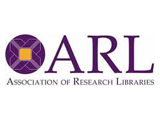
On November 14, Judge Denny Chin of the Court of Appeals for the Second Circuit ruled that the digitization of millions of books from research library collections was a fair use and dismissed the Authors Guild case against Google and its Library Project, saying that the project “advances the progress of the arts and sciences, while maintaining respectful consideration of the rights of authors and other creative individuals, and without adversely impacting the rights of copyright holders.” In his decision, Judge Chin cited a November 2012 amicus brief (PDF)submitted by the Library Copyright Alliance (comprised of the Association of Research Libraries, the American Library Association, and the Association of College and Research Libraries). The Authors Guild has stated that they disagree with the decision and plan to appeal.
This ruling examined whether Google’s digitization of copyrighted works constituted fair use under copyright law. Chin cited benefits for librarians, researchers, students, teachers, scholars, data scientists, and underserved populations, such as disabled individuals who cannot read print books or those in remote places without libraries. Carol Pitts Diedrichs, president of ARL, stated, “This decision, along with the decision by Judge Baer in Authors Guild v. HathiTrust, makes clear that fair use permits mass digitization of books for purposes that advance the arts and sciences, such as search, preservation, and access for the print-disabled.”
The District Court ruling bodes well for libraries, scholars, and researchers in the pending appeal of Authors Guild v. HathiTrust. Judge Chin agreed with Judge Baer’s fair use analysis in the HathiTrust case, indicating that the result in the Google case is compatible with theAuthors Guild v. HathiTrust decision and suggesting the possibility of a favorable decision for HathiTrust on appeal.
Google’s book digitization project, the Library Project, started in 2004. The purpose of the digitization project was to create a searchable index of books that would allow key word searching of the collections of major research libraries. Snippets of the books are accessible to the public who would not otherwise have access to the library collections. The company did not acquire permission from copyright holders, and so in 2005, individuals and the Authors Guild sued Google for copyright infringement.
Google currently has a collection of more than 20 million digitized books, mostly out-of-print titles. While titles are searchable, the Google Books website only returns snippets from the digitized texts, not full texts.
























